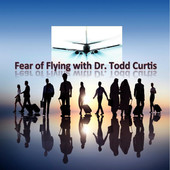On April 14, 2011, after several very public and very embarrassing incidents involving air traffic controllers falling asleep on the job, FAA Administrator Randy Babbitt accepted the resignation of Hank Krakowski, who was the manager of the FAA's air traffic control organization. Babbitt promised to perform a full review of how the air traffic control system was operated, and several political leaders, most notably President Obama, did their best to neutralize the traveling publics concerns by emphasizing their concern about the situation and their determination to ensure that the air traffic control system remains safe.
The recent public concern about sleeping controllers, which started last month after two aircraft had to abort landings because of a sleeping controller at Washington's National Airport, may bring to light some of the underlying reasons why controllers may be falling asleep. One of those reasons may be the FAA's policy for staffing air traffic control positions. One reason may have been the policy that allowed single controllers to staff control towers at major airports during late night shifts when there are few aircraft taking off or landing. The policy was recently changed, but the FAA's policy of rotating the shifts that a controller may work, for example working for several days in a row on a morning shift before rotating to either an earlier or a later shift, may play a role in controller fatigue.
Possible Roles of Fatigue and Obstructive Sleep Apnea
One possible issue, one that the FAA has long recognized, is the role that obstructive sleep apnea (OSA) in causing degraded pilot performance, including increased sleepiness. This problem isn't limited to pilots, but one that is often associated with obesity. Both the NTSB and the FAA have also been concerned about the role of fatigue in aviation safety, with the NTSB highlighting air traffic controller fatigue as one of its Most Wanted Transportation Safety Improvements.
Part of FAA's response to those related NTSB safety recommendations was a 2008 FAA symposium on fatigue where the FAA brought together a number of subject matter experts to discuss fatigue’s effects on flight crews, maintenance personnel, and air traffic controller, including the effect of rotating shifts on air traffic controller performance.
Dr. Todd Curtis of AirSafe.com discussed these and other issues on the BBC radio program Newshour on April, 14, 2011.
Additional Resources
2008 FAA fatigue symposium (index of proceedings)
Obstructive sleep apnea
FAA brochure on obstructive sleep apnea
FAA brochure on the effects of fatigue in aviation
15 April 2011
Subscribe to:
Post Comments (Atom)










The problem arises from working against human physiology rather than with it. Like other human factors problems, a thoughtful solution can be arrived at. I feel that suspending controllers punitively is not the best possible response to the problem.
ReplyDeleteIndeed, schedules that have controllers working days or early evenings part of the week and nights a different part of the week may not allow for controllers to get enough rest. Some people who work overnights have difficulty getting as much sleep as they would like to during the day. Sometimes your body just won't sleep when it is light outside. What about personal or family issues controllers may be having? For example, a controller who has a sick child may need extra time during the day to go to the doctor's office or perform other tasks, which can take away from sleep time. And what about situations in which a controller may call out sick, so another controller who wasn't expecting to work at night gets called in? Should that controller be suspended for falling asleep?
Here are some ideas for solutions: Instead of shift hours being 0700-1500, 1500-2300, and 2300-0700 or similar, have shifts that cover part of the overnight only, like 1900-0300 and 0300-1100. Have airport security regularly telephone or visit the tower during the overnight to make sure the controller is awake. Use computer monitoring, as is done in modern railroad locomotives, to monitor that controls are being adjusted on a regular basis. If the controller doesn't key up the radio, type on a keyboard, push a button, etc. somewhere in the tower within a certain amount of time, sound an alarm and flash a light (and alert security) until s/he does. Also make it possible for such alarms to be triggered remotely by radio transmission from an airplane (perhaps the pilots can transmit a tone at a certain frequency to trigger the alarm), or by a telephone call. Remote video monitoring could be used by airport security or automatically by computer to check for movement. If there are two controllers available, figure out ways to allow them to nap or take walks one at a time to help keep them refreshed. Maybe even install exercise equipment in the tower like a treadmill or exercise bike. Perhaps the lighting used inside towers could be made to resemble sunlight rather than using standard fluorescent light bulbs, or the heating/air conditioning could automatically change temperature from time to time, giving the controller a reason to get up and adjust it. Perhaps there are ways to scientifically assess which individuals are better suited to work at night and those individuals can be assigned more often to the night shift.
Whatever solutions like this are used, by all means make sure that good backup procedures are in place to allow for safe landings when there are few planes in the vicinity and a controller doesn't respond, including contact with controllers at alternate facilities and treating the airfield as you would an uncontrolled airfield, with pilots constantly announcing their position while landing. Pilots can divert to their alternate airport if safety is in question.
I fear that controllers working overnights are under more stress given all the publicity and may be tempted now more than ever to abuse caffeine in the form of energy drinks or coffee, which will lead to health problems for them down the road. There must be a better solution than that.